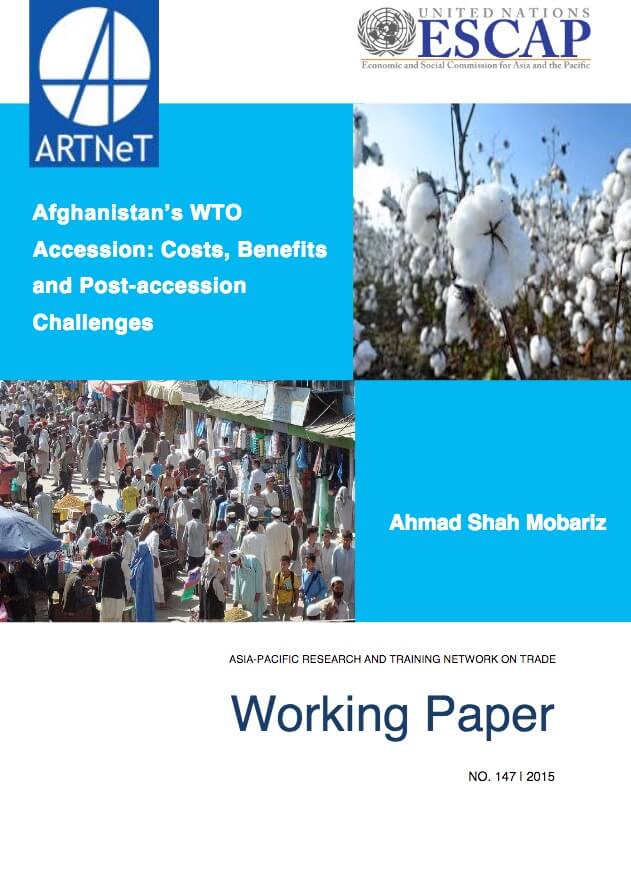Afghanistan’s WTO Accession: Costs, Benefits and Post-accession Challenges

The paper undertakes a cost-benefit analysis of Afghanistan’s accession to the WTO while attempting to shed light on the post-WTO accession challenges. For our empirical analysis we have applied the WITS/SMART model to assess the implication of the WTO membership. A cut in tariffs is the independent variable and government revenue, trade creation, consumer welfare and general welfare of the economy are dependent variables. The results indicate that Afghan consumers stand to benefit from tariff reforms with overall positive welfare gains to the economy. However, reduced tariff rates will lead to a fall in government revenue and a substantial increase in imports, subsequently raising concerns over negative trade balances. The final section of this paper studies the post-accession challenges with a particular focus on development, institutional, legal and environmental issues. Our analysis, based on the sectoral mix of Afghanistan’s economy suggests that producers will lose out. The findings of this study support the position that Afghanistan should maintain the maximum policy space in order to achieve its long-term development goals.
